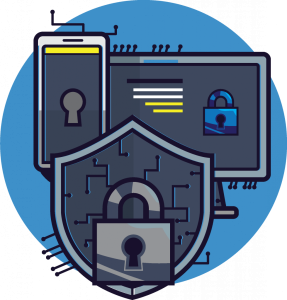Syllabus
Wymagania zaliczenia
Prerequisites
Basic computer skills. ECDL Core level.
Learning objectives
- To acquire basic knowledge of computer networks, network infrastructure.
- To learn about LAN, MAN, WAN network architecture.
- Getting familiar with the 7 layer ISO/OSI model.
- Getting familiar with the TCP/IP network value model. Knowledge of the basics of TCP and UDP protocols.
- Knowledge of the basics of VoIP communications.
- Understanding of network performance issues. To be familiar with network traffic mitigation methods.
- Use of computers, digital tools and computer networks, including knowledge of the principles of digital devices and computer networks and performing basic computer network tests.
Learning outcomes for the course
A student who has passed the subject knows/knows/can do:
KNOWLEDGE
- Knows characteristics of network/server services
- Has broad, structured knowledge of services and applications used in computer networks. He knows network operating systems
- Has knowledge of configuration of network devices
- Has knowledge of the threats present in computer networks. Understands the importance and role of selected network protocols with assignment to specific reference model layers
- Has knowledge of the design of computer networks and their components
- Describes and analyses IP address classes
- Is able to list the ISO/OSI layers
- Recognises local computer network topologies
- Understands TCP/UDP port addresses
- Knows the terms related to: administration and management of computer networks
- Is familiar with network services
- Knows the principles of operation of network devices
SKILLS
- Configures internet telephony devices
- Describes and analyses IP address classes
- Connects a local computer network to the Internet
- Is able to analyse traffic in computer networks. Is able to configure network addressing and selected security elements.
- Is able to configure basic network devices. Knows and can use a simulation tool in the analysis and design of computer networks.
- Is able to configure network service servers
- Is able to configure a workstation to work in a network
- Is able to test the performance of a network
- Is able to design a local computer network
- Is able to build a simple local area network using real network devices. Be able to prepare structured cabling independently.
- Is able to remotely manage workstations in a network
- Is able to design the IP address structure in a network
- Recognises and applies standards for structured cabling
- Recognises local area network protocols and wide area network access protocols
- Recognises network devices (description, symbol, appearance)
- Performs measurements and tests of the logical network
SOCIAL COMPETENCES
- Selects computer structural network elements, network devices and software
- Is aware of the impact of computer networks on society
- Describes the configuration of network interfaces
- Is able to prioritise activities
- Is able to work and cooperate in a group, in the scope covering configuration of addressing and selected network services.
- Is able to work in a team, to solve tasks together
- Understands the principles of computer network protocols

Ostatnia modyfikacja: piątek, 17 lutego 2023, 16:38
